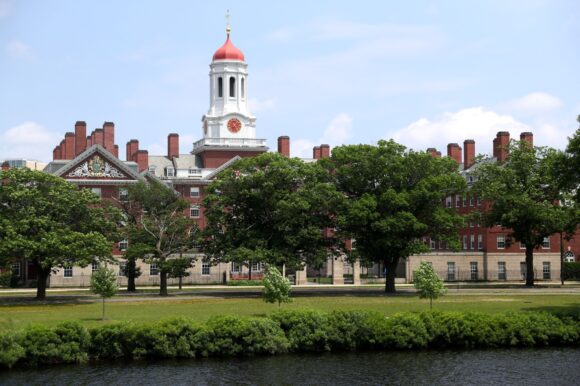The US Supreme Court effectively barred universities from using race as a factor in university admissions, marking the start of a new era in higher education and rolling back decades of precedents.
Voting 6-3 along ideological lines, the justices said programs at Harvard College and the University of North Carolina violated the Constitution’s equal protection clause. Writing for the court, Chief Justice John Roberts rejected contentions that the programs were warranted to ensure campus diversity.
“Both programs lack sufficiently focused and measurable objectives warranting the use of race, unavoidably employ race in a negative manner, involve racial stereotyping, and lack meaningful end points,” Roberts wrote. “We have never permitted admissions programs to work in that way, and we will not do so today.”
The ruling could mean fewer Black and Hispanic students at the country’s top universities and force hundreds of schools to revamp their admissions policies. Studies indicate a majority of selective US universities now consider race in admissions, though nine states including California and Florida ban the practice at public institutions.
The high court majority didn’t explicitly say it was overturning a 2003 decision, known as Grutter v. Bollinger, that had reaffirmed the right of universities to consider race as one of many admissions factors. But in a concurring opinion, Justice Clarence Thomas said that ruling “is, for all intents and purposes, overruled.”
Also Read: Missed Deadline Costs Harvard $15M in Insurance for Admissions Policy Defense
‘Devastating Impact’
Justices Sonia Sotomayor, Elena Kagan and Ketanji Brown Jackson dissented.
“Today, this court overrules decades of precedent and imposes a superficial rule of race blindness on the nation,” said Sotomayor, who took the unusual step of reading a summary of her dissent from the bench. “The devastating impact of this decision cannot be overstated.”
Jackson, who participated only in the North Carolina case, said majority opinion ignored “the lengthy history of state-sponsored race-based preferences in America.” The country, she said, “has never been colorblind.”
Justices Samuel Alito, Neil Gorsuch, Brett Kavanaugh and Amy Coney Barrett joined Roberts and Thomas in the majority.
Roberts said universities could consider how race affected the lives of individuals “be it through discrimination, inspiration or otherwise.”
But universities “may not simply establish through application essays or other means the regime we hold unlawful today,” Roberts wrote.
The ruling left open the possibility that the nation’s military academies might still be able to consider race in admissions. Defenders of affirmative action, including the Biden administration, argued that that the US military depends on a racially mixed officer corps to lead a diverse fighting force.
Conservative Majority
In his concurring opinion, Thomas called the admissions policies “rudderless, race-based preferences designed to ensure a particular racial mix in their entering classes.” Like Sotomayor, he read a summary of his opinion from the bench.
“Those policies fly in the face of our colorblind Constitution and our nation’s equality ideal,” Thomas wrote. “In short, they are plainly — and boldly — unconstitutional.”
Opponents of racial preferences sought to take advantage of a court that has become more conservative since 2003. The universities were fighting lawsuits by Students for Fair Admissions, an anti-preferences organization run by former stockbroker Ed Blum that says its members include unsuccessful applicants to both schools.
The group contended that Harvard penalizes Asian Americans during the admissions process, assigning them lower ratings on leadership and likability, while automatically giving preferences to Black and Hispanic applicants.
Harvard denied those allegations, saying it considers the race only of highly competitive candidates for admission and doesn’t penalize Asian-American applicants.
The Biden administration joined the two universities in defending affirmative action programs, arguing that students of all races benefit from having diverse peers.
Photo: Harvard University in Cambridge, Massachusetts. Photographer: Maddie Meyer/Getty Images
Topics Education Universities
Was this article valuable?
Here are more articles you may enjoy.



 Preparing for an AI Native Future
Preparing for an AI Native Future  Judge Tosses Buffalo Wild Wings Lawsuit That Has ‘No Meat on Its Bones’
Judge Tosses Buffalo Wild Wings Lawsuit That Has ‘No Meat on Its Bones’  Florida Engineers: Winds Under 110 mph Simply Do Not Damage Concrete Tiles
Florida Engineers: Winds Under 110 mph Simply Do Not Damage Concrete Tiles  AI Claim Assistant Now Taking Auto Damage Claims Calls at Travelers
AI Claim Assistant Now Taking Auto Damage Claims Calls at Travelers 

